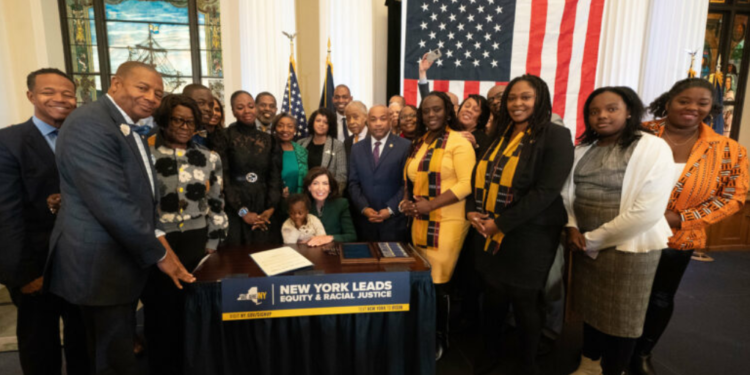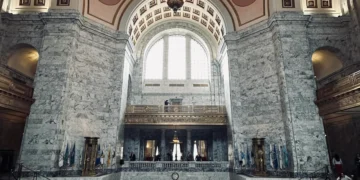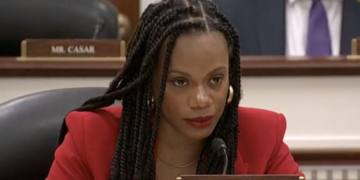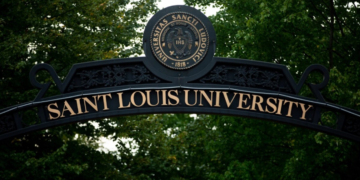Aug 22, 2024 Story by: Editor
New York State’s reparations commission is set to convene next week as part of its ongoing efforts to deliver a report of recommendations within the year. These recommendations are expected to influence future state policies on reparations.
This meeting coincides with growing national attention to the issue of reparations. Most notably, the Democratic National Committee’s 92-page platform has underscored the party’s commitment to studying reparations on a nationwide level, specifically in its section on racial equity.
“We have a long way to go to realize the full promise of America, but we are committed as a party to continuing the work to build a nation where all people are not only created equal, but treated equally throughout their lives,” the platform reads. “To determine how best to right historical wrongs, Democrats support Congress executing a study of reparations and the continuing impacts of slavery.”
Across the country, various states and local governments are also working on reparations initiatives. In June, Chicago launched a reparations task force aimed at addressing the city’s legacy of slavery and its lasting impact. Similarly, Illinois’ state reparations commission began holding public hearings in July to gather feedback from residents.
Detroit’s reparations task force has also sought public input, asking residents whether they support proposals such as cash payments to Black residents, grants of up to $40,000 for home down payments, free city land for Black Detroiters, and efforts to reduce the overcriminalization of minor offenses like loitering and littering.
At the state level, California is making significant headway. Three major reparations bills recently passed committee and are now advancing to a full Assembly vote. State Senator Steven Bradford, the sponsor of the bills, said this was a “step closer to placing these historic bills on Governor Newsom’s desk.” The legislation aims to create a reparations agency, compensate Black residents for land taken through eminent domain, and set up a state treasury account to fund future reparations initiatives. Though California entered the Union as a free state and sent the highest per-capita number of soldiers to fight for the North in the Civil War, it still faces a legacy of racial injustice, as highlighted by the Sun.
New York’s commission, formed under legislation signed by Governor Kathy Hochul, held its first public meeting at the end of July. During the session, members discussed their initial objectives, including staffing requirements and legal challenges they may face.
“We’re going to need some legal support,” said commission member Lurie Daniel Favors. “Particularly because this is a very litigious area, and there are a lot of folks who are looking for any reason possible to shoot down what we are doing,” she explained, referring to the Supreme Court’s recent ruling striking down affirmative action at colleges. This ruling has led to concerns over the constitutionality of race-based programs, such as reparations. In Evanston, Illinois, the nation’s first reparations program is facing a lawsuit from non-Black residents who argue that the payments are discriminatory.
It remains uncertain whether New York’s commission will recommend direct cash payments or other forms of compensation.
The commission’s first meeting saw the successful election of its chairwoman, but there was tension as members were unable to elect a vice chair due to the absence of one member. State law had required the election of both a chair and vice chair at the first meeting, which led to frustration among attendees when the task was left incomplete.
“What was today’s mission?” one attendee asked, voicing dissatisfaction that “we didn’t accomplish that today.”
“It’s a short time frame, a very short time frame to get the work done that you need to get done,” another attendee remarked, highlighting concerns about the commission’s ability to meet its goals.
“This is the first meeting, and already there’s a lot of miscommunication,” another attendee said. “Just seeing this meeting right now, there’s a lot of concerns already that I have.”
The next meeting of the commission will take place at the Empire State Plaza in Albany. It will be open to the public and live streamed. Source: NY Sun

















